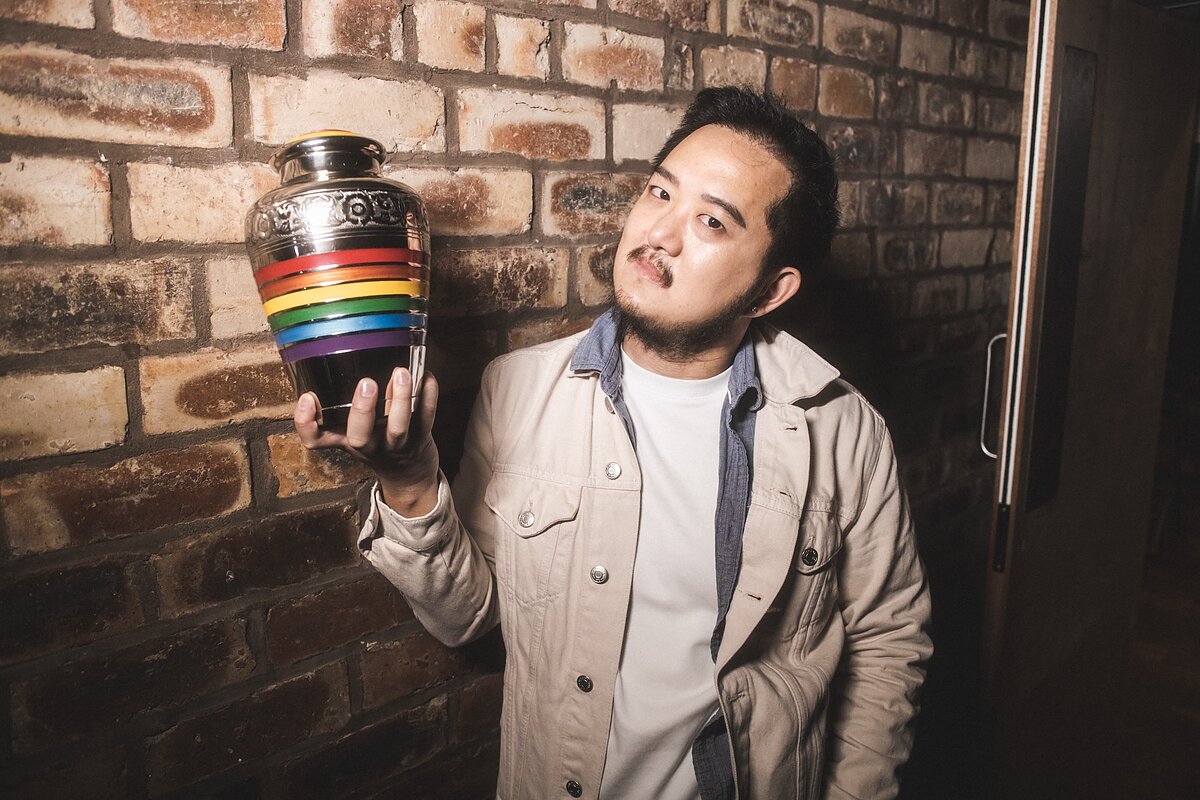How Ricky Sim Found Freedom in Comedy
Growing up, Ricky Sim never thought he’d become a standup comedian. “I was really scared to be onstage,” Sim told me. Like many first and second generation immigrants, a scarcity mentality and the fear of instability made Sim pursue a career in law for five years. These days, however, the Queens-based writer and standup uses his comedy to break boundaries and combat the lack of representation in queer Asian comedy.
Though his journey in the industry began about 12 years ago, Sim decided to step back when he didn’t see a lot of Asian representation in comedy. This lack of representation also manifested as rampant racism disguised as humor. Sim recalls how back then, most open mic events were dominated by white men. “When they saw an Asian guy, the comedian on stage would be like ‘Oh, look. The delivery guy is here.”
Sim’s discomfort was further exacerbated by his being gay within a pervasively homophobic culture. Yet the need to tell his story, especially about his mother and the gay Chinese-Malaysian experience, led him to unlearn the scarcity mentality and embrace the uncertainties of a very difficult field. “This is what my heart is telling me to do,” said Sim. “I should just follow it.”
Through an emotional rollercoaster, Coming Out To Dead People showcases how Sim navigates gay Asian life, being born with a cleft palate, racism, and the dilemma of coming out to his mother who was diagnosed with cancer.
In Edinburgh, Sim recalls being exposed to many different works and forms of storytelling that one might not typically encounter in New York, including a pole dance show that told the story of a Muslim person navigating religion, and finding their partner in the UK. “It gave me the courage to write my show,” said Sim. Seeing the bravery of other performers and writers helped Sim navigate the imposter syndrome that many artists of color face in a white-dominant culture.
In 2021, Sim received the PIT/Saturday Night Live scholarship that allowed him to hone his craft. Since then, Sim has performed at the New York Comedy Festival, the New York Queer Comedy Festival, and The Asian Comedy Festival. In addition to Coming Out to Dead People, Sim has also written Corporate Gaysian, which navigates the challenges of the gay Malaysian immigrant experience in the US.
Of his recent Off-Broadway run, Sim hopes that attendees, whether they relate or not to his story, were able to glean some hope and inner peace—particularly LGBTQ+ AAPI. “[I] hope they can feel less alone after watching the show,” Sim said. “It may take time for the family to accept you. Parents may not be able to change, either because they don’t want to see what they don’t want to see or maybe because they left the world too soon. We have to try to find peace within ourselves.”
And as much as Coming Out to Dead People is a for-us-by-us experience for the LGBTQ+ AAPI community, Sim’s storytelling is also universal in its precision. “Folks who are not from similar backgrounds might walk away with a different view of how family could work and learn to find solace in death in a way they might not know is possible,” said Sim.
——Rohan Zhou-Lee, pronouns They/Siya/祂/Elle, is a dancer, writer, and public speaker. They are also known for founding The Blasian March, a Black-Asian solidarity initiative through education and celebration.

